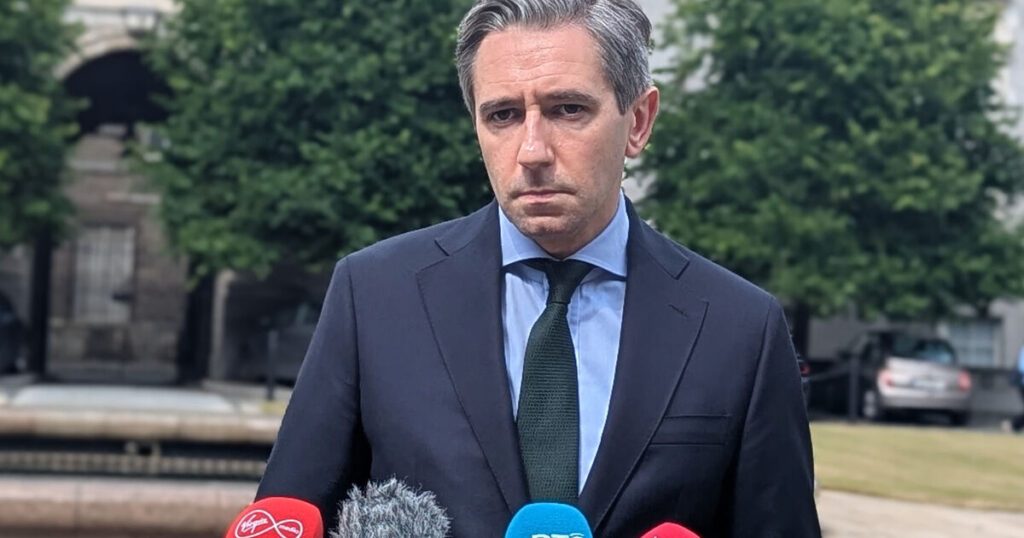A 30% tariff trade war with the US would have “significant” impacts on the Irish economy, including an increasing rate of job losses, ministers will be warned on Tuesday.
That scenario, according to EU trade chief Maros Sefcovic, would effectively end trade between the EU and the US. Arriving for talks with European ministers in Brussels, Mr Sefcovic said a tariff of 30% or more would have a huge impact, making it “almost impossible to continue” current transatlantic trade, which is worth €4.4bn a day.
At Tuesday’s Cabinet meeting, Mr Harris is expected to tell ministers that Ireland’s focus over the next two-and-a-half weeks is on negotiations to reach a deal to avoid the imposition of higher tariffs that could precipitate a full-blown trade war between the EU and US.
He will tell colleagues that this scenario would see a significant impact on the economy, including devastating job losses.
Mr Harris will warn that the possibility of the EU imposing a revised list of counter tariffs, amounting to €72bn, against the US if talks fail would “cause pain on both sides”.
The coming weeks must, therefore, be used for a negotiated settlement to avoid such a scenario, Mr Harris will say.
The Tánaiste will also update ministers on plans to engage with the pharmaceutical industry this week.
Modelling carried out by the Department of Finance in May said that an ongoing 10% tariff war would see GDP hit by 1.5 percentage points and around 25,000 fewer jobs created, but modelling of a 30% tariff scenario has not been carried out.
A Government source said the 30% figure was “unthinkable” until recently.
It is understood this modelling is being prepared in advance of the budget.
On Monday, Mr Harris met with the new US ambassador to Ireland, Ed Walsh, and said that he had relayed to the US administration a “consistent” and “very straightforward” message — “we in Ireland, we in Europe, want a deal”. Mr Harris added:
Paschal Donohoe, the finance minister, said it is impossible to gauge the impact of a 30% tariff on the Irish economy.
“What the exact effect could be would depend on what exactly the level of tariffs would be, and at this moment in time, with all the unpredictability, it is very difficult to forecast.”
In response to Mr Trump’s latest deadline, the EU decided to postpone until August 1 retaliatory counter-tariffs on €21bn of US goods that had been due to kick in at midnight last night.
In Brussels on Monday, EU foreign ministers discussed plans for a further round of counter-measures, targeting €72bn of US imports to the EU.
European commissioner Michael McGrath said that the EU does not want to use those counter-measures, but would if necessary: “I want to underline the importance of unity,” he said. “What we have been doing in relation to counter-measures is preparing for different scenarios.
“There are two different sets of packages of countermeasures that amount to the imposition of tariffs of exports from the US into the EU of over €90bn,” Mr McGrath said.
“We do not wish for that to come to pass, but in the event that it does, then we will need to respond if the US proceeds unilaterally with the imposition of tariffs of the order that president Trump has flagged in his letter over the weekend,” he told RTÉ radio.


